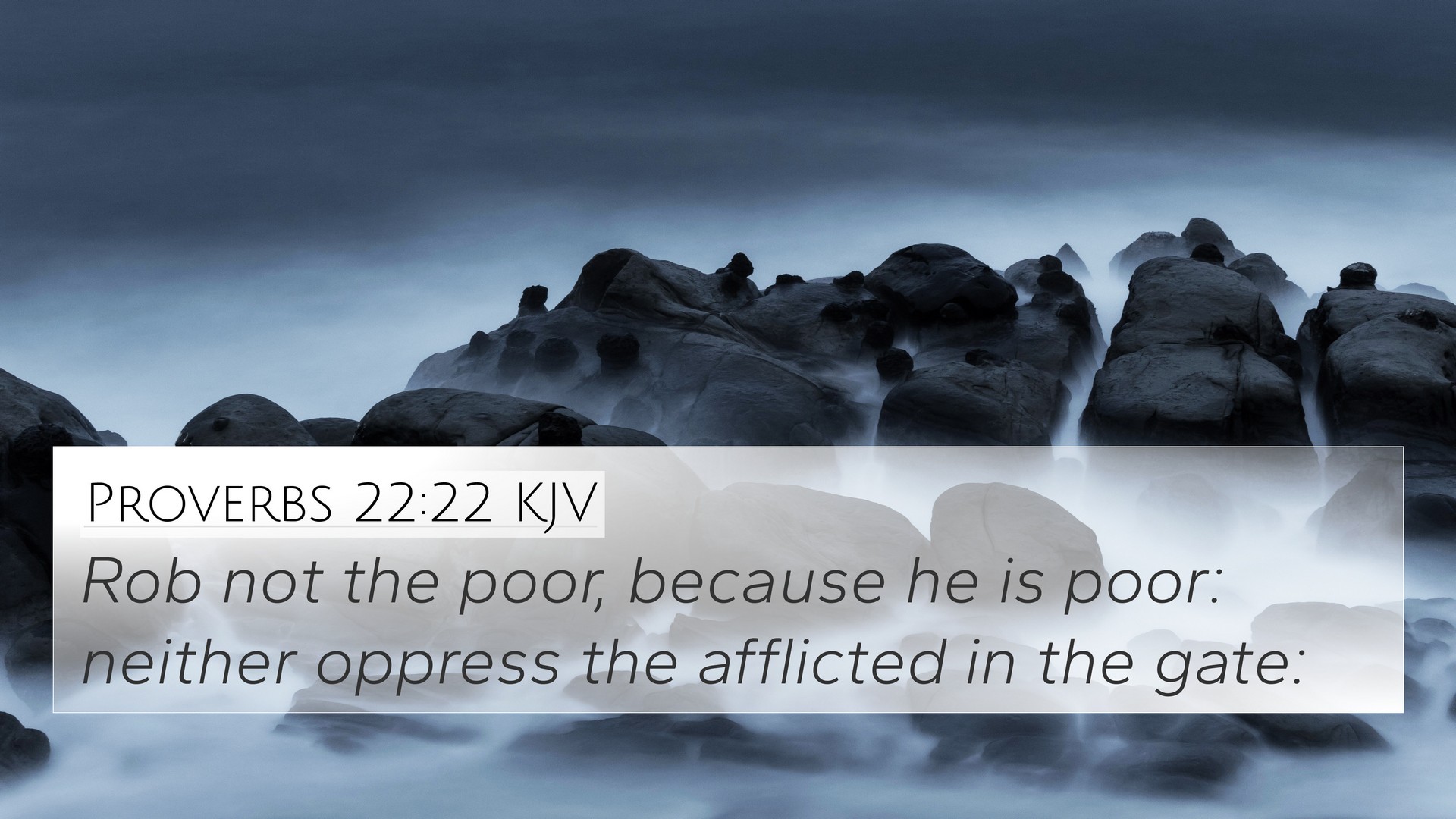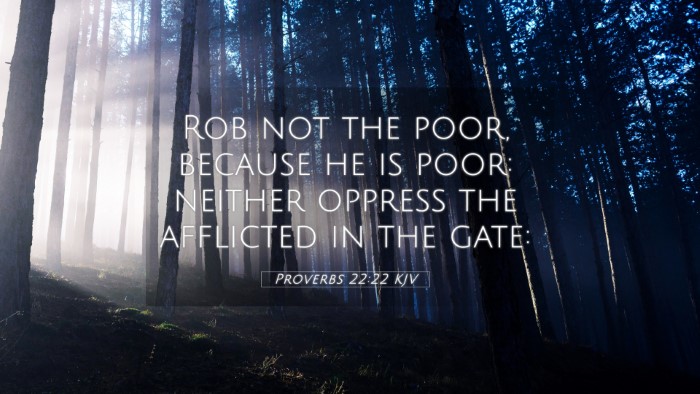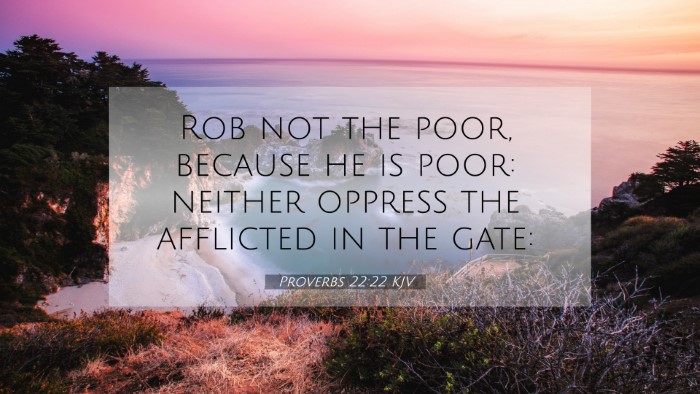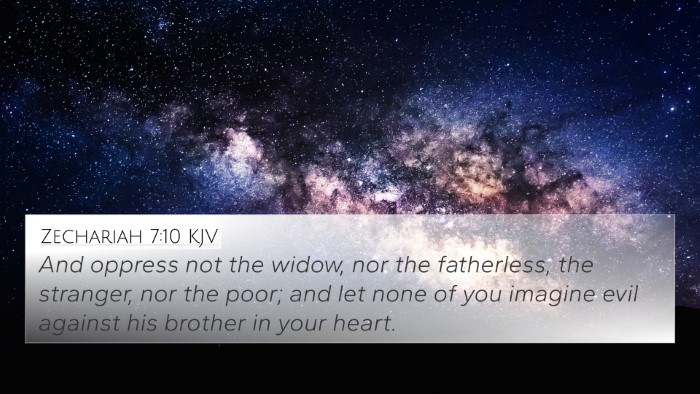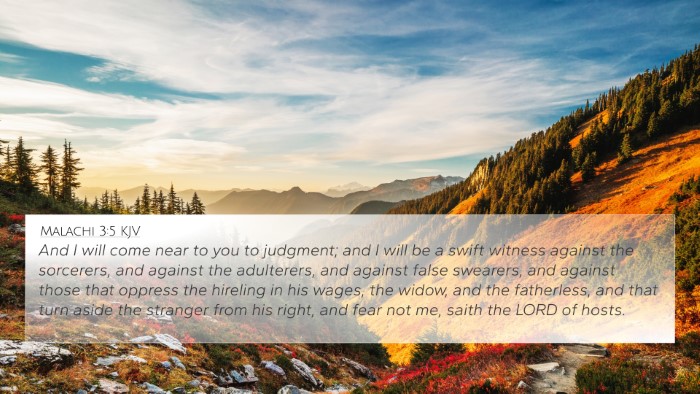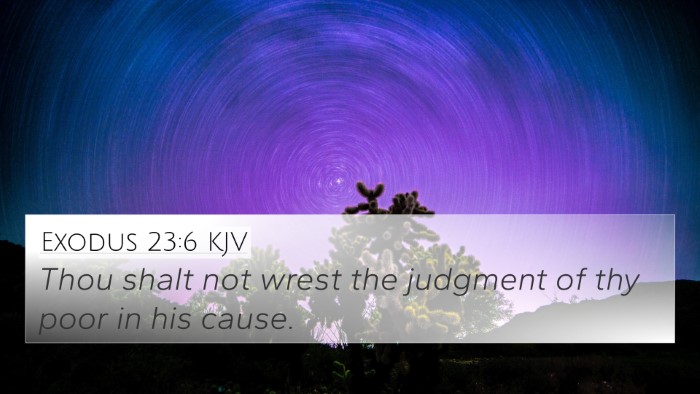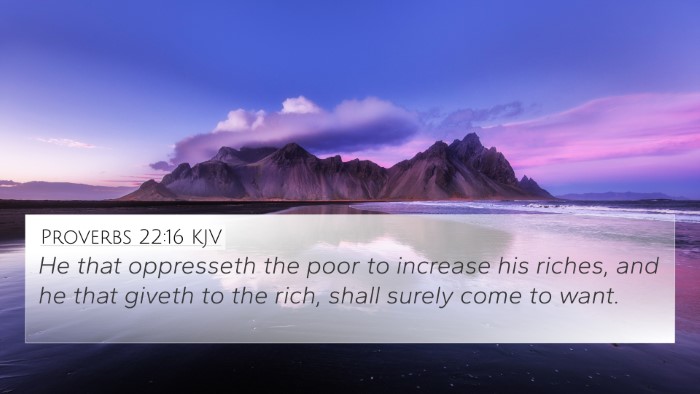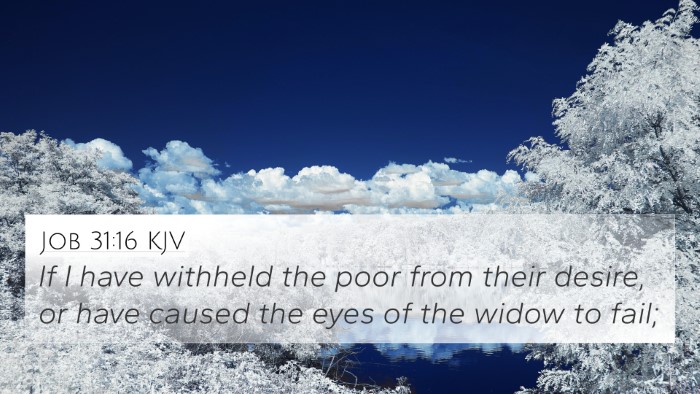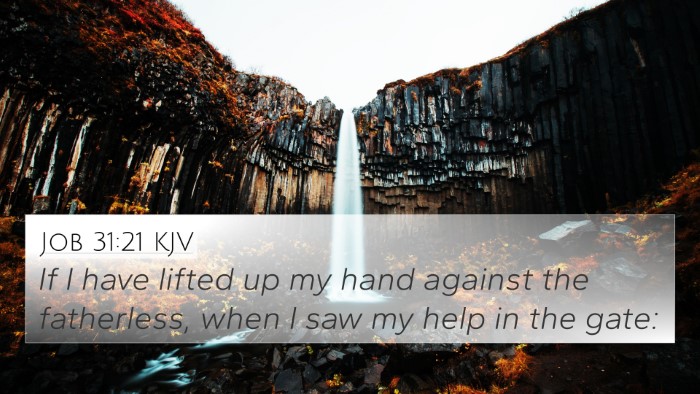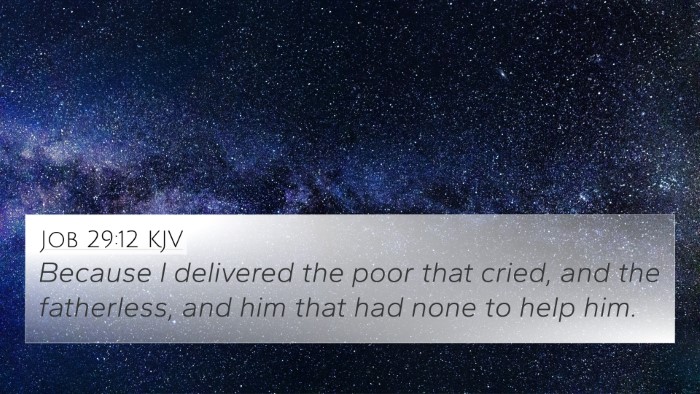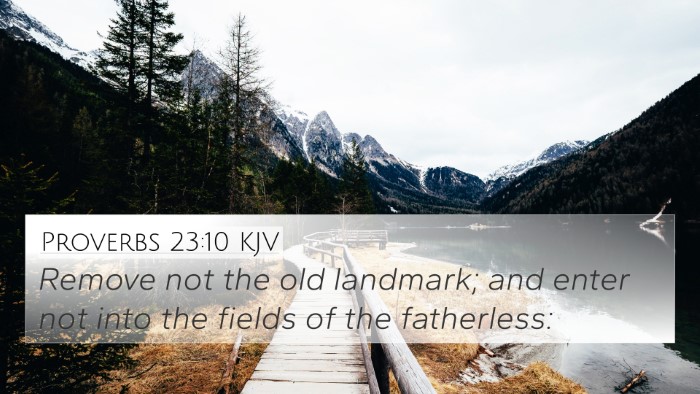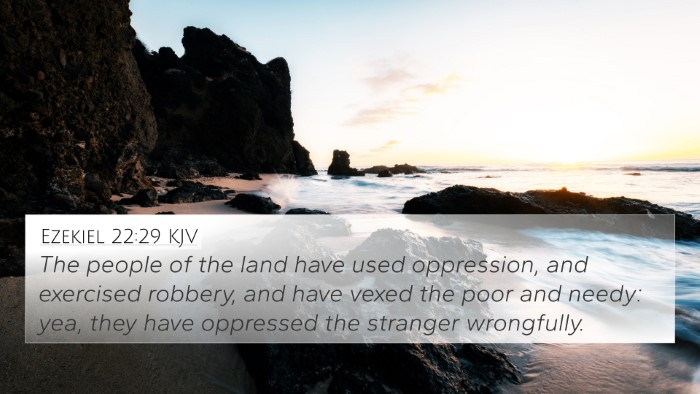Meaning of Proverbs 22:22
Proverbs 22:22 states: "Do not rob the poor because he is poor, nor oppress the afflicted at the gate." This verse addresses the moral and ethical responsibility humans have towards the economically disadvantaged. It emphasizes the injustices that can arise from wealth disparities and cautions against taking advantage of those who are vulnerable.
Summary of Insights from Commentaries
This verse receives substantial commentary concerning its moral implications and societal responsibilities. The insights from public domain commentaries provide a rich understanding of this text.
-
Matthew Henry:
Henry emphasizes that the poor are particularly at risk for exploitation due to their vulnerable condition. He warns that righteousness comes with protecting those in need rather than oppressing them. The 'gate' symbolizes places of power and decision-making, where injustices can overflow without accountability.
-
Albert Barnes:
Barnes interprets the 'poor' not merely based on their financial status but also in terms of their social standing and ability to defend themselves. He highlights that the powerful must be aware of their influence and the moral duty they have to ensure equity and justice for all. The admonishment serves as a reminder that societal structures often oppress the downtrodden.
-
Adam Clarke:
Clarke articulates that robbing the poor is a sin not only against the individuals affected but against God Himself. The reference to the 'gate' suggests judicial proceedings where the powerful might impede fair judgment against the less fortunate. He encourages generosity and kindness as key virtues in ensuring social harmony and justice.
Contextual Analysis
In the broader context of Proverbs, this verse serves to reinforce the theme of justice and mercy throughout the text. The emphasis on caring for the poor and oppressed is a continuous thread seen across various wisdom literature. This verse acts as a reminder of the social structures that exist within the community and the imperative to uphold justice.
Related Bible Verses
To fully appreciate the meaning of Proverbs 22:22, one can cross-reference it with other biblical texts that resonate with its themes. Here are some pertinent connections:
- Proverbs 14:31: "He who oppresses the poor reproaches his Maker, but he who honors Him has mercy on the needy."
- James 2:5: "Listen, my beloved brethren: has God not chosen the poor of this world to be rich in faith and heirs of the kingdom?"
- Exodus 22:22: "You shall not afflict any widow or fatherless child."
- Deuteronomy 15:7: "If there is among you a poor man of your brethren, you shall not harden your heart or shut your hand from your poor brother."
- Psalm 82:3: "Defend the poor and fatherless; do justice to the afflicted and needy."
- Matthew 25:40: "Assuredly, I say to you, inasmuch as you did it to one of the least of these My brethren, you did it to Me."
- Luke 4:18: "The Spirit of the Lord is upon Me, because He has anointed Me to preach the gospel to the poor."
Understanding the Importance of Cross-Referencing
Understanding Proverbs 22:22 requires engagement with the overarching Biblical themes. The concept of cross-referencing Biblical texts illuminates the ethical expectations placed upon believers and highlights the profound moral implications of one's actions toward the needy. Engaging with thematic Bible verse connections enriches the reader's experience and understanding of God's desire for the faithful to uphold justice.
Methods for Cross-Referencing in Bible Study
Utilizing tools for Bible cross-referencing can significantly enhance one's study:
- Using a Bible concordance to identify keywords and concepts connected to justice and mercy.
- Exploring a Bible cross-reference guide to examine how various verses correspond with one another thematically.
- Practicing cross-reference Bible study methods to compare narratives and teachings found throughout both the Old and New Testaments.
The Role of Cross-Referencing in Sermon Preparation
Cross-referenced themes in the Bible play a vital role in crafting sermons and teachings. Identifying parallels between Proverbs 22:22 and other scripture allows for a deeper dialogue between the text and contemporary issues of justice and compassion. This can assist those studying how to find cross-references in the Bible and enrich their lessons.
Conclusion
Proverbs 22:22 leads us into a greater understanding of divine justice and our responsibilities toward the less fortunate. Through careful application of ethnical teachings, cross-referenced insights, and communal accountability, believers are encouraged to embody the principles of compassion and mercy prevalent throughout scripture.
